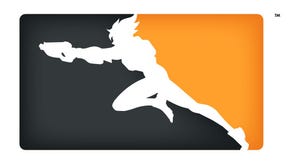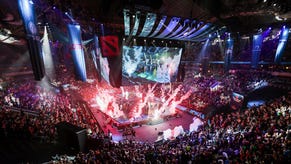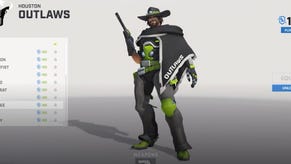Interview: How The Esports Integrity Commission Hopes To Crack Down On Cheating
Stopping betting fraud
Organisations aiming to regulate esports seem to be sprouting on an almost daily basis. The latest of the bunch is ESIC, the Esports Integrity Commission, a not-for-profit who want to "take responsibility for disruption, prevention, investigation and prosecution of all forms of cheating," including both match manipulating and doping. Match manipulation seems a particularly large focus and the organisation is being supported by the UK Gambling Commission among others, with the ESL and Dreamhack counted among its members.
We spoke to Ian Smith, ESIC's 'integrity commissioner', via email about what prompted the move towards regulation, his own leap from cricket to esports, and how enforcement of regulations will work.
RPS: Tell me a bit about ESIC. What's your elevator pitch for the organisation?
Ian Smith: ESIC exists to provide an overarching sporting integrity function for esports. It is a not for profit members’ association that provides protection against integrity threats by implementing an Anti-Corruption Code across all esports stakeholders, monitoring betting markets for suspicious activity, investigating where there appears to be a case to answer and prosecuting breaches of the Code through an independent disciplinary process. All members will honour the sanctions and support ESIC’s efforts to educate all participants as a deterrence to all forms of corruption in esports.
RPS: Tell me about your own history with esports and how you got involved with this project?
Smith: Prior to July last year I had not heard of esports. I have spent my entire career in traditional sports, so I have had a steep learning curve getting to grips with esports and its unique ecosystem. I got involved through ESL asking me, as a number of esports match-fixing scandals emerged over the course of last year, to conduct a threat assessment and make recommendations about how those threats could be combatted. ESIC was the result of those recommendations being implemented. I have worked in traditional sports integrity for more than 20 years, so the parallels between what is developing in esports and what happened in traditional sports historically are obvious and my experience will help esports avoid the multitude of mistakes and crises that have occurred in traditional sports.
RPS: What was the tipping point within esports which led to the formation of ESIC?
Smith: Two things: first, the iBuyPower case and the Starcraft2 arrests in Korea and, second, the genuine concerns expressed by major prospective non-endemic sponsors about the lack of governance and regulation within esports when considering sponsoring in light of the risk of brand damage by association with a game, team or tournament that becomes hit by an integrity crisis.
RPS: What is it that ESIC wants to do that isn't being addressed by other companies and initiatives? Specifically, how is this different from what WESA wants to do? Or the work ESL was doing implementing anti-doping testing?
Smith: ESIC is a regulator, not a governing body or a league, so ESIC has nothing in common with WESA – in fact the only link between ESIC and WESA is that the league that WESA has sanctioned, the ESL Pro-League is covered by the ESIC Programme because ESL are a member of ESIC. Because ESL are a member, ESIC will take over responsibility for ESL’s anti-doping programme after ESL One Cologne next week.
RPS: Will you be working in tandem with those other organisations or just with game developers and betting organisations?
Smith: ESIC will work with tournament platforms, games publishers and bookmakers primarily, but would welcome support from any other esports stakeholders and we already enjoy that from some that will be announced on Tuesday.
RPS: The press release mentioned prevention, investigation and prosecution of all forms of cheating. Can you tell me what you mean by that - how would an example case be handled?
Smith: This is a complex question not easily answered in the short time I have. Prevention is primarily through education and having the correct measures in place – good regulations backing up a good system for alerting to suspicious bets. Match-fixing is driven by betting fraud, so a good working relationship with bookmakers is vital. Investigation occurs after a suspicious bet alert is received through Sportradar or via the Gambling Commission or an individual bookmaker. If the investigation indicates that participants have a case to answer, a procedure kicks in whereby ESIC prosecutes them before an independent Disciplinary Panel and the participant has an opportunity to defend themselves in accordance with principles of natural justice.
For example, we might receive an alert before a match – we would alert the relevant member and then get them to take special note of the game and the way it is played. If the game result backs up the suspicious betting, we would launch a full scale investigation – detailed game data, witness statements, interrogation, examination of mobile phone records, bank accounts and links between the players and the accounts of the gamblers that placed the suspicious bets. If the conclusion of that investigation was that we thought the players or other participants were guilty of complicity in match-fixing, we would prosecute them.
RPS: With regard to prosecution and other matters how will you handle regional differences in law or in tournament organisations?
Smith: Local law enforcement can deal with the matter in whatever way they choose – ESIC will cooperate with them – but local laws are not relevant to a regulatory prosecution by ESIC. If a tournament organiser is an ESIC member, they will have agreed to the Anti-Corruption Code and Disciplinary Procedure, so the matter will be dealt with the same way in all jurisdictions.
RPS: The press release also stated "The Mission of ESIC is to be the recognised guardian of the integrity of esports..." How will you get organisations to see you that way? Why do they need what you're offering and what is it that puts you in a position to be that guardian?
Smith: ESIC offers esports a coherent Programme based on simple universal principles that will create consistency and professionalism across esports and is cost effective. Of course, each stakeholder could do their own thing and invent their own wheel, but why would they? If I can’t persuade them of the value ESIC adds, then that is my failing, but I am confident I can. I bring a lot of experience – I know others have that experience too, but they are not involved in esports.
RPS: The information I've seen so far seemed very focused on the financial side of esports, particularly the gambling side. What is the balance there? Is ESIC supporting the integrity of esports in order to maintaining the health of the associated gambling industry?
Smith: There is no “side” of the esports ecosystem favoured by ESIC because interests across the system are aligned. The gambling industry has multiple sources of markets and money – esports just has esports – if esports is crippled by match-fixing scandals, it will fade and die. If esports fades and dies, bookmakers will survive, not esports. Consequently, ESIC does not exist to maintain the health of the gambling industry. The fact is that match-fixing is driven by betting fraud. The biggest losers in betting fraud are the bookmakers, so they have a direct interest in sporting integrity and are the best source of intelligence, but the principle drivers of ESIC were the esports industry who face catastrophe if esports declines. My mandate comes from the members and their interests are the same – clean esports.
RPS: What are the next steps for the organisation now it's been announced?
Smith: ESIC will now focus on finalising membership agreements with stakeholders with whom we are currently in negotiation, recruitment of additional members from across the esports ecosystem and the implementation of the ESIC Programme in members’ terms and conditions of participation. We will also be rolling out participant anti-corruption education (a process already underway with well over 100 esports professionals already having attended education presentations, with more scheduled) and monitoring and investigation of suspicious betting in esports markets through the support of Sportradar’s market leading Fraud Detection System and relationships with the licenced bookmaking industry.










